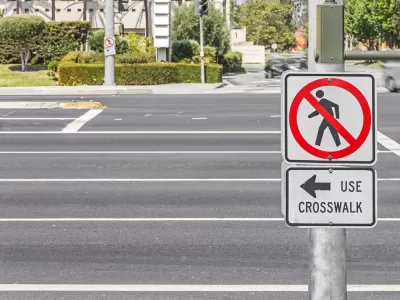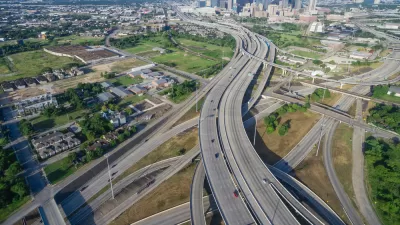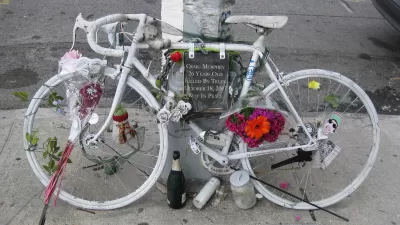Innocent until proven guilty—unless you're a pedestrian in the court of opinion.

"Media outlets frequently shame walking in the way they cover issues related to walking, and these tactics contribute to a culture where death and destruction are accepted as unavoidable byproducts of our auto-oriented mobility norms," according to the argument of a recent article by Matt Steele.
To help members of the media be more deliberate in their presentation of the issues and politics surrounding walking, Steele goes on to highlight several examples of "walk-shaming," including:
- Misunderstandings about crosswalks. Victim blaming, according to Steele, is especially easy when crosswalks are so poor in so many cities. In Minnesota, for example, every corner is a crosswalk—even when unmarked. That doesn't stop the media from implying the fault of the pedestrian when struck and killed or injured when crossing the street legally.
- The use of the word "accident," which, according to Steele, "serves to entrench the fatalistic concept that, in the absence of intent, carnage is merely an occurrence of chance."
- Walk-shaming advertisements.
Each of the above examples, and the others mentioned in the article, include recent, specific examples of the media perpetrating a walk-shaming narrative.
FULL STORY: Walk-Shaming in the Media

Planetizen Federal Action Tracker
A weekly monitor of how Trump’s orders and actions are impacting planners and planning in America.

Canada vs. Kamala: Whose Liberal Housing Platform Comes Out on Top?
As Canada votes for a new Prime Minister, what can America learn from the leading liberal candidate of its neighbor to the north?

The Five Most-Changed American Cities
A ranking of population change, home values, and jobs highlights the nation’s most dynamic and most stagnant regions.

San Diego Adopts First Mobility Master Plan
The plan provides a comprehensive framework for making San Diego’s transportation network more multimodal, accessible, and sustainable.

Housing, Supportive Service Providers Brace for Federal Cuts
Organizations that provide housing assistance are tightening their purse strings and making plans for maintaining operations if federal funding dries up.

Op-Ed: Why an Effective Passenger Rail Network Needs Government Involvement
An outdated rail network that privileges freight won’t be fixed by privatizing Amtrak.
Urban Design for Planners 1: Software Tools
This six-course series explores essential urban design concepts using open source software and equips planners with the tools they need to participate fully in the urban design process.
Planning for Universal Design
Learn the tools for implementing Universal Design in planning regulations.
New York City School Construction Authority
Village of Glen Ellyn
Central Transportation Planning Staff/Boston Region MPO
Institute for Housing and Urban Development Studies (IHS)
City of Grandview
Harvard GSD Executive Education
Regional Transportation Commission of Southern Nevada
Toledo-Lucas County Plan Commissions





























